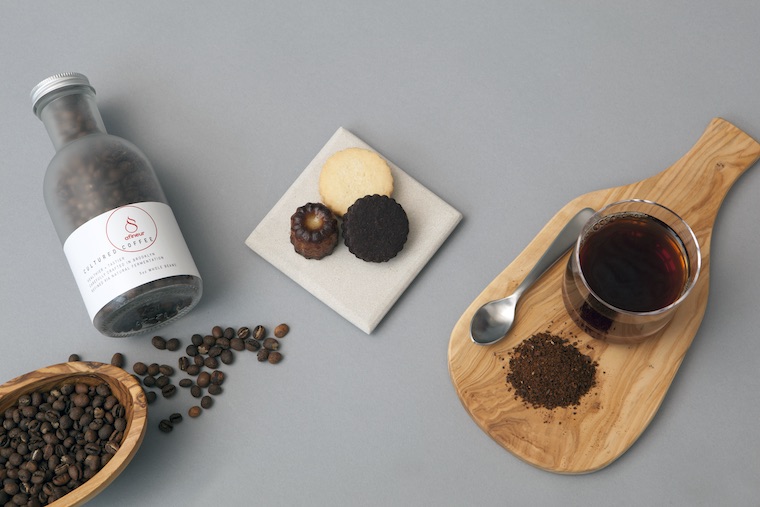Fine coffee made by artificial fermentation without the help of civets
For professional baristas, please follow the coffee workshop (Wechat official account cafe_style)
If wine, beer and cheese are all fermented, why not apply the same method to coffee beans? According to Well+Good, almost 83% of American adults drink coffee, but the latter figure is not very good-74% of Americans have so-called intestinal problems. Now Afineur, a biotech company based in Brooklyn, has created a fermentation process that reduces digestive problems caused by drinking coffee and will change the lives of many coffee addicts.
Afineur ferments the green coffee beans for two days before they are roasted. The final flavor is based on the chemical reactions between coffee beans and different microorganisms, which will reduce the bitterness, astringency and acidity of coffee, and make a cup of smooth coffee with flower and fruit flavor.
Treehugger points out that throughout the fermentation process, microbes eat chemicals that make coffee beans bitter after roasting, leaving flavor-enhancing substances that do not cause palpitations and gastrointestinal discomfort after drinking. Dr. Delebecque, CEO and founder, explained that people with acid reflux and irritable bowel disorders can drink this new type of coffee even if they are usually more sensitive to traditional coffee. The reduced bitterness also means that this fermented coffee tastes more mellow! He and another founder, Dr. Sophie Deterre, spent a year successfully controlling the reaction between coffee beans and microbes to create coffee that is both delicious and good for the body.
The two founders, Camille Delebecque, have a doctorate in microbiology and train bioengineers; Sophie Deterre, who has a doctorate in food process engineer, has worked in the field of food science for many years and has been involved in a number of projects, including the enhancement of the flavor of Grand Marnier orange wine.
Afineur fermented boutique coffee is inspired by Indonesian civet coffee, but it is a more practical and affordable option. Civet coffee, also known as Kopi Luwak in Indonesian, is actually Kopi Luwak, one of the most expensive and precious kinds of coffee in the world. In Southeast Asia, civets as small as cats are imprisoned in small cages, forced to feed coffee beans and fermented in their digestive systems, which are excreted and roasted because the beans cannot be digested. It becomes a round, full-bodied coffee, leaving an unforgettable aftertaste. In addition to the humanitarian issues, the price of civet coffee is also astonishingly high, which can cost as much as $80 a cup.

Afineur uses artificial fermentation to replace the fermentation process of coffee beans in the musk cat's stomach. For Dr. Delebecque, it's a way to combine his interests in biology and food. "I'm a biologist and I've always been a food enthusiast," said Dr. Delebecque, who has a doctorate from the University of Paris V and Harvard. "fermented coffee is only the first step for the biological startup to change the food of the future, which they hope will reduce the irritation of traditional food to the body, increase vitamins and protein, and make the food taste better.
Important Notice :
前街咖啡 FrontStreet Coffee has moved to new addredd:
FrontStreet Coffee Address: 315,Donghua East Road,GuangZhou
Tel:020 38364473
- Prev

The 23-year-old, who has no money and power, brings local coffee beans to the world.
Professional barista communication please follow the coffee workshop (Wechat official account cafe_style) "if you want to change the world, what can a 23-year-old boy do?" "six years ago, this was the question that a lot of people asked Ayu Lee Chuepa. Now he has grown up a few years old, and his appearance is still flying. This time Munchies came to Akha Ama Fattoria, his second coffee shop in Chiang Mai, Thailand, to talk about Lee.
- Next

The blue elf from the Melbourne coffee shop absorbs the full score and healthy blue latte.
The exchange of professional baristas please follow the coffee workshop (official Wechat account cafe_style) in recent years, the hot new topics in the catering industry are absolutely all kinds of bright and beautiful drinks. According to the catering website REFINERY29, a cute blue drink launched in 2016. This amazing blue latte is like a blue elf, from Match, a restaurant in Melbourne, Australia.
Related
- Workers collapse! Lucky suspects that it will introduce freshly cut fruits?!
- 1-point subsidy recipients wear thousand-yuan watches?! Local response: For low-income households
- Can lightly roasted coffee beans be used to extract espresso? How finely should you grind high-quality coffee beans to make Italian latte?
- What is the difference between the world's top rose summer coffee and Yejia Shefi? What are the flavor characteristics of Yega Shefi coffee and Panama rose summer?
- The ceremony is full! Starbucks starts to cut the ribbon at a complimentary coffee station?!
- A whole Michelin meal?! Lucky launches the new "Small Butter Apple Crispy Latte"
- Three tips for adjusting espresso on rainy days! Quickly find the right water temperature, powder, and grinding ratio for espresso!
- How much hot water does it take to brew hanging ear coffee? How does it taste best? Can hot water from the water dispenser be used to make ear drip coffee?
- What grade does Jamaica Blue Mountain No. 1 coffee belong to and how to drink it better? What is the highest grade of Blue Mountain coffee for coffee aristocrats?
- What are the flavor characteristics of the world-famous coffee Blue Mountain No. 1 Golden Mantelin? What are the characteristics of deep-roasted bitter coffee?

